My Favourite Rocks #3
One of the first rocks I bought when I first fell down the rabbit hole of rock collecting is a genuine, 100% space rock – a lovely piece of the famed Campo Del Cielo meteorite strewn field in Argentina.
One of the first rocks I bought when I first fell down the rabbit hole of rock collecting is a genuine, 100% space rock – a lovely piece of the famed Campo Del Cielo meteorite strewn field in Argentina.
The last thing most people would put on their Xmas list is “Dear Santa, please could I have an active volcano in my back yard”. For sure there’d be advantages: A built in BBQ that could handle pretty much any size of steak, and I wouldn’t have to pick up after my dog’s back-end eruptions (the last big clean up, which thankfully my wife did, clocked in at 29 “deposits”). Aside from that and the free orange light show, it’s hard to see any real benefits to rivers of lava squashing the Hydrangeas.
One of my bestest favouritest rocks is a ventifact (pictured below). It sat on my office desk in downtown Vancouver for the last 4 years and was terribly neglected during lock down, so I brought it home last week to make it feel loved again. It now sits under my computer screen next to a 1kg cube of tungsten metal and a small brass cock. (As an aside, the tungsten cube is unbelievably dense – the same specific gravity as gold at about 19.2).
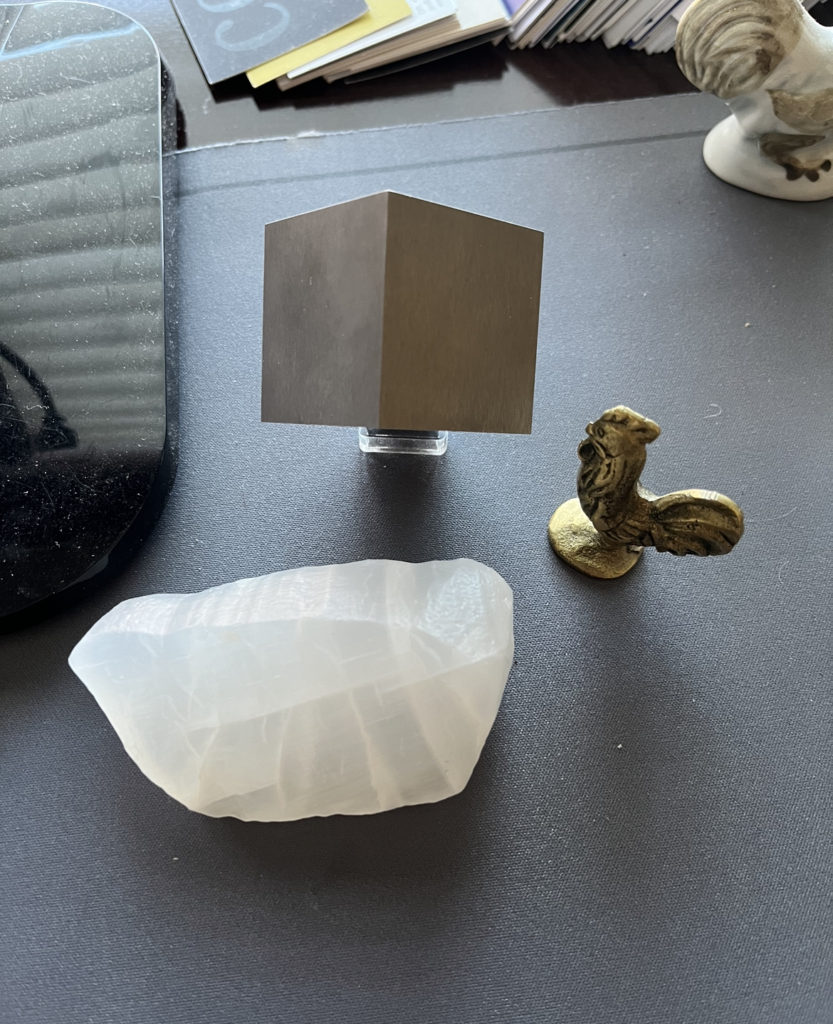
Ventifacts are naturally polished rocks that have been shaped by wind-blown sand or ice, typically in desert environments -a process known as as “corrasion“; a new technical word for me, which just goes to show you’re never too dumb or too old to learn. They’re found in deserts all over the world from Antarctica to Egypt and have even been recognised on Mars where they’re suspected to have damaged a wheel on NASA’s Curiosity Rover. The term -which loosely translated from the Latin means something made by the wind- first appears in the literature around 1911; a British geologist coined it to describe wind-shaped rocks he saw in Africa and parts of Asia.
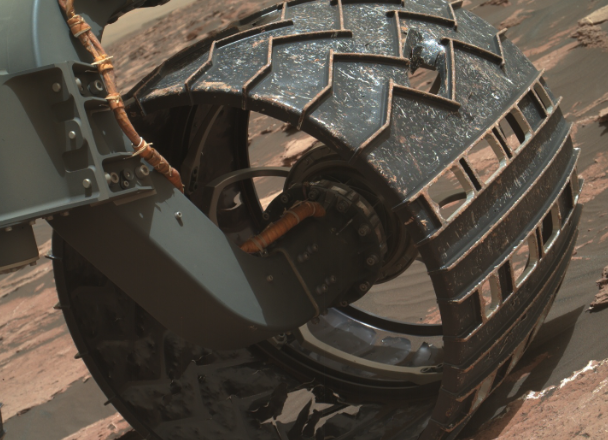
I was fondling my rocks the other night -something I do often- gently touching them, stroking each one, talking to them like the fine old friends they are. My collection is growing, so mid Covid I bought some rickety, white Ikea Billy shelving to show off the best pieces in my home office, where nobody can see them but me. Mid-caress, my eyes were drawn to the 3 sulphide specimens perched on the top shelf which has begun to sag worryingly under the weight of sexy, coloured rocks.
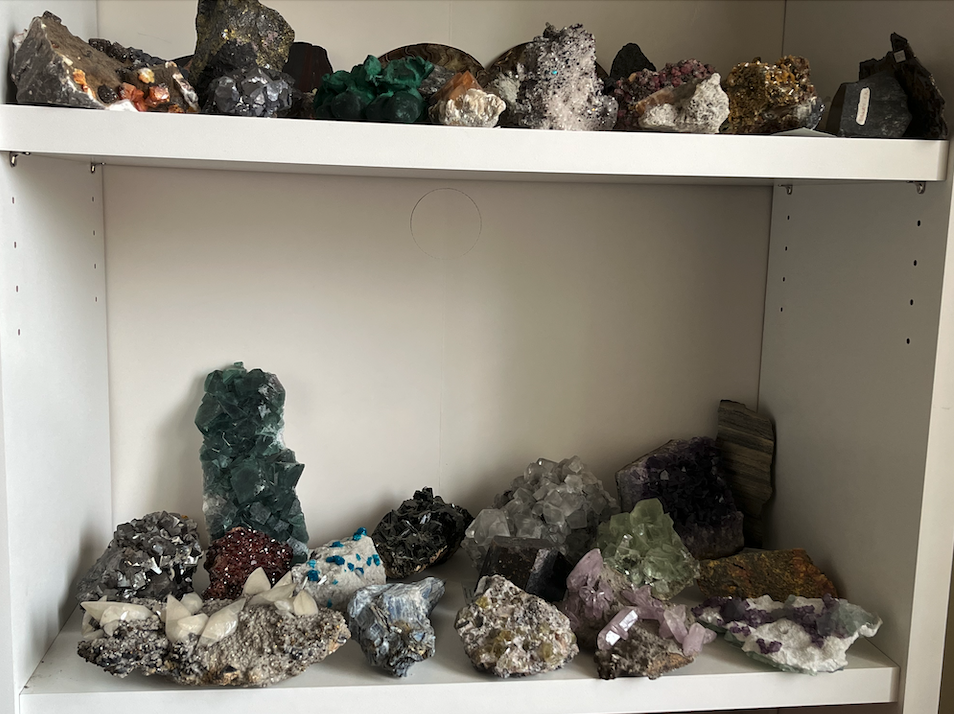
They’re 3 of my favourite samples: very different visually but closely related chemically. There’s some eye candy pyrite from Huanzala in Peru, a particular favourite; a wonderful chunk of arsenopyrite from Kosovo, and some meaty looking yellow-orange orpiment I collected in Iran. They represent points on a chemical spectrum with iron sulphide at one end, iron-arsenic sulphide in the middle and pure arsenic sulphide at the other end. Pyrite has cubic crystal structure, and orpiment and arsenopyrite are both monoclinic – an off-kilter matchbox shape.
At this point, the mineralogists out there will nerdily tell me that it isn’t that simple you idiot, and they’re right – there’s all sorts of pressure/temperature/chemical considerations that influence which mineral forms and when- but I like to think of them as a simple spectrum.
Continue reading “My Favourite Rocks Pt 1”*the new official spelling of the country’s name.
High up in the mountains of northeast Türkiye -up where the borders of Georgia, Türkiye and Armenia meet- the terrane is alpine and rugged. The spectacular scenery is underlain by highly prospective volcanic rocks; the tell-tale rusty signs of possible sulphide mineralization scattered all over.
The first time I went up there I was with 2 other geologists; a pleasant, easy going Turkish chappy who I’ll call Ahmed, and an annoying German one who I’ll call Harald. Harald had strong opinions about bloody everything and wasn’t shy to share them; a stark contrast to Ahmet who was happy to be learning the exploration ropes from a couple of relatively experienced geologists. He tagged cheerfully along, breaking rocks with his hammer and chucking the better ones into sample bags for assay.
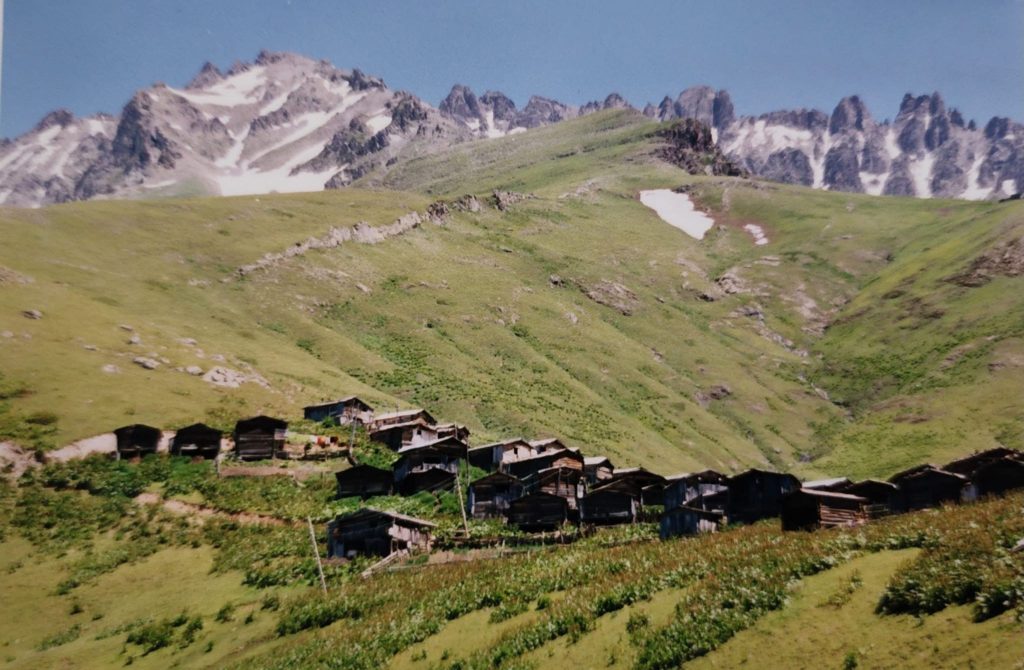
But Harald -good old Harald, every team has one- well, he was a know-it-all who always had a better way of doing things and wouldn’t let an argument die even when his aggravated British colleague was about to give him a good Schlag in the Mund. He also refused to drive the field truck (with hindsight, perhaps a good thing) which added to my workload because as the most experienced off-road driver in the group, the long drives along forestry roads fell to me. Harald aside, I was happy enough. The geology was excellent, the pay was good and the scenery even better, when you could see it through the heavy clouds that often blanket the region.
Continue reading “More Memories of Türkiye*”I was never really one for keeping a diary; I’m fundamentally too lazy, and not nearly introspective enough to sit down every day after my sausage-and-mash supper to scribble down the day’s events. I tried once when I was working in Turkey and ended up with half a dozen pages of forced, trite, verbal garbage about an ex-girlfriend that made me cringe when I read it back a few weeks later. I binned it. With hindsight, I wish I had kept at it because this blog relies largely on my rapidly fading memories of nearly 40 years in geology and mining. It’s become a sort of “hindsight diary” reliant on my decades-old impressions rather than in-the-moment detail.
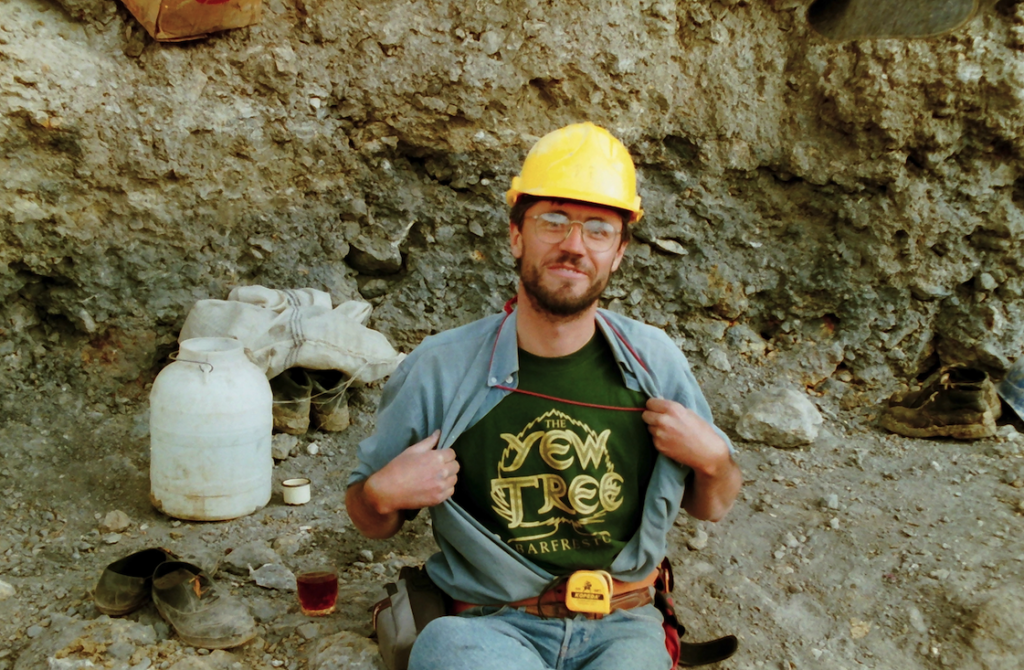
The only time I did keep a regular diary, I had no idea that I was doing it. In 1996 I was sent to Iran by Anglo American to supervise a drill program at a gold project called Zarshuran in the north of the country. It didn’t go well. A perfect storm of awful rock conditions and stunningly inept drill company management had our number before we’d even started. We were doomed but we just didn’t realise it yet. The drillers were the most comical I have ever had the misfortune to hire; their lack of talent and common sense was a wonder to behold, and the managers couldn’t be trusted to sit the right way on a toilet. We only drilled 7 holes in 3 long, ball-breaking months of drilling and those holes cost us/me a whole world of pain and frustration, yielding shitty core recoveries and not enough data to make a firm decision on the future of the project.
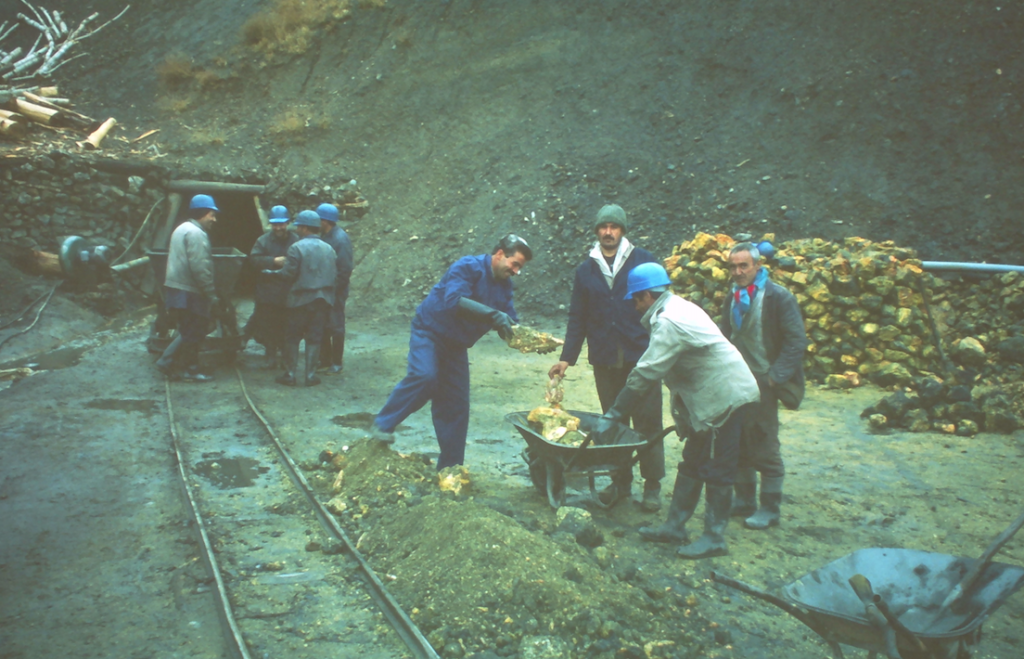
I faxed a routine daily drill report from our camp camp back to head office in London via a dodgy satellite phone at the camp: I had to lean out of the cabin window and press on a specific point on the antenna while it was operating otherwise it wouldn’t work, and it gave up functioning all together at sub-zero temperatures. As the late Iranian summer dragged into autumn, and we were only getting 1-2m core a day, the water pipes began to freeze overnight, and my daily reports got more and more fraught before the drilling finally ground to a halt in November as winter set it. I can only imagine how much the London team dreaded the daily chronicle of desperation spewing out of the fax machine. Happily, my boss at the time (thanks Dave) had the presence of mind to a) recognise that I was documenting my own slow decline into total lunacy, and b) to keep the daily reports and bind them together into a single document; an ad hoc diary of my misadventures which was presented to me at the office Christmas party later that year in Budapest. This piece is based on the daily faxes which I still have, 25 years later.
Continue reading “How Not To Drill A Project Pt 1”Most earth scientists are deeply passionate about their science, treating it as a vocation -a true calling- and not just any old degree. And they tend to feel the same way about beer, applying just as much discipline and passion to the task of finding a well-pulled pint as they do to ferreting around for a nice trilobite specimen in the local quarry. I’m not sure how it is in other countries, but in Merrie Olde England all geology students possess a mental map of the country based on 2 priorities: rocks and pubs. We know which pubs to visit in any town that’s close to an important geological location, and no college field trip is complete without at least one solid session in a well-known local watering hole.
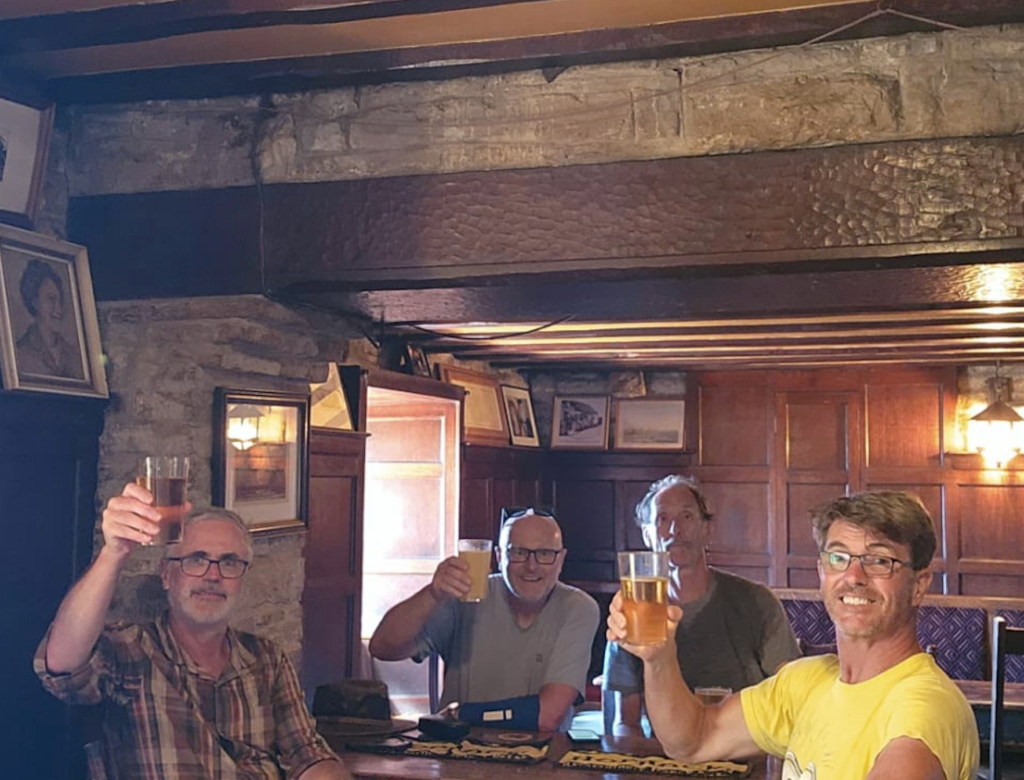
In my formative high-school years, pre-geology, when we wanted to get really trashed we tended to eschew beer in favour of cheap gin or vodka. And if you’ve ever had a proper gin drunk, you’ll know that’s a really stupid teenage thing to do, inevitably ending with a couple of hours crawling-on-the-bathroom-floor-begging-for-death and then a cataclysmic hangover the next day. I vaguely remember a teenage episode involving me, my friends, and a bottle of gin, followed by a long sojourn down the side of the house, where I lay on the cold path head down in a drain, talking to myself until my parents carried me in doors.
Continue reading “Gin & Geologists Don’t Mix Well.”Two years ago, in a moment of remarkable prescience for yours truly, I had an idea. Good ideas don’t come often to me so I had to act fast. Figuring (correctly) that COVID was going to last a while, I decided I needed something to look forward to other than a) pandemic weight gain and b) the weekly Okanagan doorstep wine delivery which was becoming a little too regular and comfortable. A walking trip would be ideal I thought, but when, where and who with?

I contacted three good friends, all geologists like me, over WhatsApp.
Chaps, I said. We need to something to look forward to other than a) our pandemic weight gain b) and the weekly doorstep wine delivery.
Agreed, they said in a WhatsApp-in-unison sort of way.
So, says I, why don’t we book a walking trip in the UK for the summer of 2022? How about a week or two hiking along the Cornwall / Devon coast? If we book now we can pick the optimum window for a good old-fashioned sunburn, like mid-July to early August.
Oh yes. We’re in if you book it! they replied somewhat cryptically.
Righty ho. I replied. Will do.

Shuffling along the winter tideline, layered in strata of sweaters and a damp anorak, I finally spotted what I was looking for; a small, rounded translucent orange pebble maybe 1cm across. It winked seductively at me from a pungent bed of rotting seaweed. I was thrilled. It was my first piece of North Sea amber.
I didn’t find amber often, just regularly enough to keep me coming back to the beach near my home in all weathers, stumbling along -eyes to the ground- oblivious to the cold and rain.
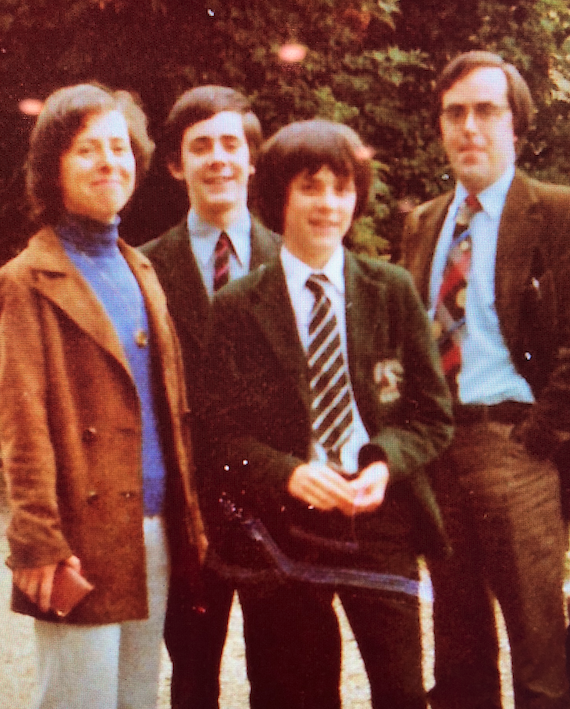
It was one of my nerdier phases as a kid -and God knows I had some really sad ones. When my teenage buddies were leafing through torn copies of girly magazines and puffing on illicit ciggies down the alley behind Woolworths in Ramsgate, I could be found grubbing about on the beach looking for fossils and amber. (Yeah, well, mildly inaccurate. I did have a well-thumbed magazine stuffed under the mattress and I had started smoking at 14, so all is not lost.)
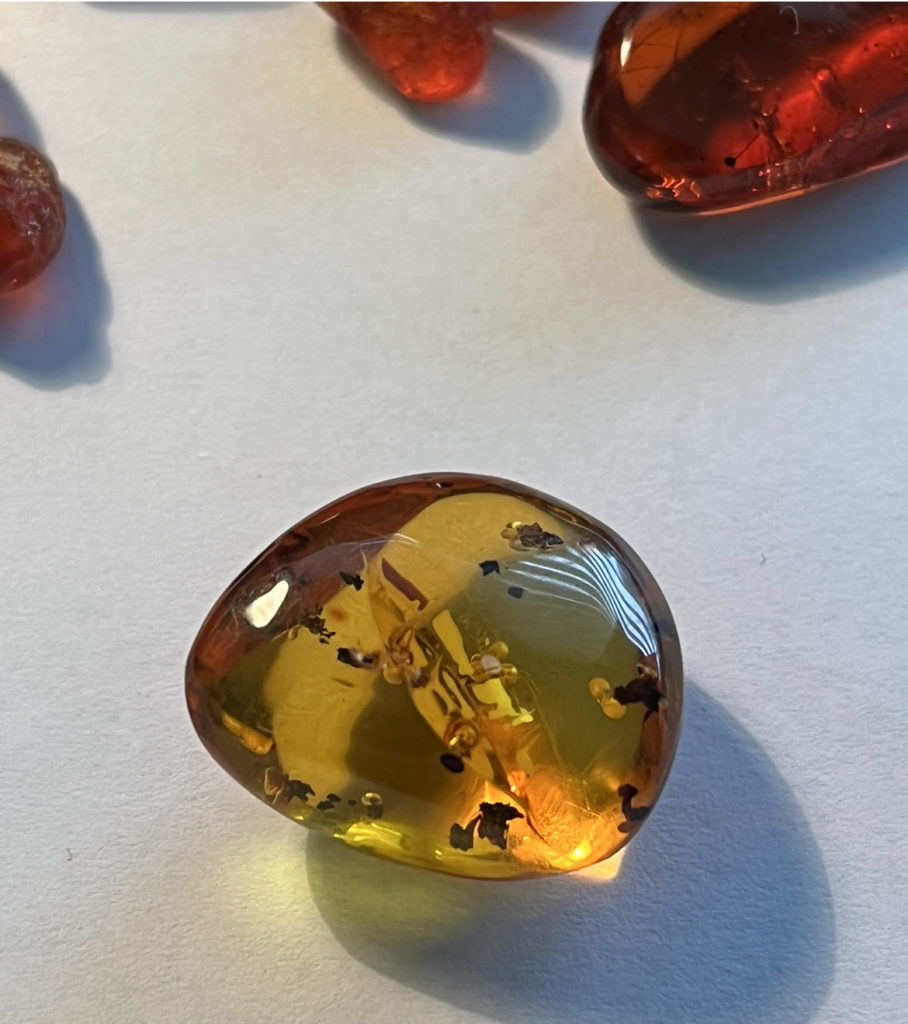
I was back home in Brexit land in October and again in November. In between moping on the forecourts of sucked-dry gas stations, getting rained on in Wales, and being depressed in downtrodden Stoke on Trent, I had plenty of time to ponder the curious world of British place names (as you do).
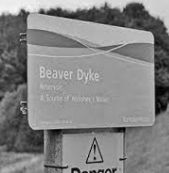
The UK is full of wonderfully rude place names; there are so many that one intrepid individual, Paul Taylor, recently embarked on a comprehensive tour of the smuttiest ones perched on a rather dodgy looking 50cc moped.
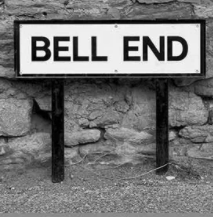
Mr. Taylor started in Shitterton and ended up -fittingly- in the pleasant hamlet of Bell End. Along the way he stopped in The Knob in King’s Sutton, Butthole Lane in Shepshed, Titty Ho, Cockermouth, and Minge Lane. Genius. I’ve been to Cockermouth, and yes, I admit I sniggered as we drove into the village past the name sign.
The disciplines of geology and mining are not without their double entendres, but remember, at best mining people are a beer-swilling puerile bunch not widely known for their intelligent, penetrating humour. True, there are plenty of words that will raise a chuckle from them, but it’s stuff that would make most normal people stare at each other in baffled incomprehension.
Continue reading “Rude Words & Geology”